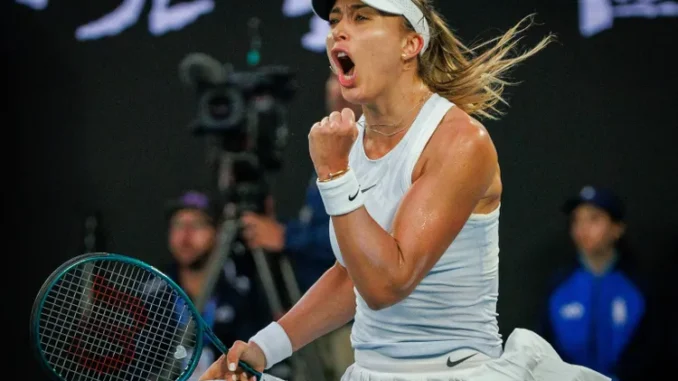
The arduous journey back to the professional tennis circuit is often fraught with physical pain and mental anguish, a reality that Spanish star Paula Badosa has intimately experienced over the past year. After a prolonged battle with a debilitating back injury that threatened to prematurely end her career, Badosa has finally declared a significant victory: she is “pain-free” and back on the court, a pronouncement that resonates deeply with her fans and the wider tennis community. This return marks a pivotal moment for the former world number two, who has faced immense challenges both on and off the court.
Badosa’s struggles began in earnest in 2023 when a chronic back injury, specifically a stress fracture, forced her into a prolonged hiatus. The severity of the condition was such that retirement became a very real and unsettling prospect. She has spoken candidly about the daily torment, revealing that she would often wake up “feeling scared” about her back, the uncertainty of her physical state casting a dark cloud over her life. This constant apprehension, coupled with the physical limitations, took a heavy toll on her mental well-being. The emotional burden of being sidelined, especially after reaching a career-high ranking and showcasing her immense talent, proved to be as challenging as the physical pain itself.
“This time, for me, mentally, it hurt,” Badosa openly shared, reflecting on the recent period of absence since March. Her words convey the profound emotional impact of her recurring injury woes. “Because I think I was playing the best tennis of my life. I was playing very well. Physically, I was feeling very well also. Stopping like this was tough for me.” This poignant admission highlights the cruel irony of her situation: just as she was hitting her stride, delivering a phenomenal performance that included a run to the Australian Open semifinals in January and a return to the WTA top 10, the injury resurfaced, halting her momentum.
The chronic nature of her back problem means it may be a lifelong companion, a stark reality that Badosa has bravely confronted. She has made the difficult decision to delay surgery, opting instead to manage the pain with regular painkillers, all in a desperate bid to prolong her career. “I know that I am going to retire young, and the next day I will go straight to the operating room,” she revealed with a raw honesty that underscores her commitment to the sport. “I know this from the race I’m in and from the problems I have with my back. If they tell me to stop at 30 or 32, then fine, but if I can endure it in some way, then I’m going to try.” This unwavering determination to compete, despite the immense personal cost, is a testament to her profound love for tennis.
The mental battle, she admits, has been the most arduous. The pain, which at times has affected her nerves, has disrupted her sleep and made even simple daily activities a struggle. “Mentally it is what is costing me the most,” she confessed, illustrating the invisible fight she wages away from the public eye. The psychological toll of living with such uncertainty, of constantly questioning whether her body will cooperate, is a burden few can truly comprehend.
Her recent return at the Internationaux de Strasbourg, where she advanced after her opponent’s retirement, was a significant step forward. While she acknowledges that she is “still very far from my level,” the mere fact of being back on court, moving freely and without pain, is a monumental victory in itself. Her focus now is squarely on maintaining this pain-free status as she navigates the remainder of the Strasbourg tournament and sets her sights on the upcoming French Open.
Paula Badosa’s journey is a powerful narrative of resilience, sacrifice, and the enduring human spirit. Her willingness to share the raw, emotional truth of her struggles not only humanizes elite athletes but also provides a beacon of hope for anyone facing their own battles with chronic pain or mental health challenges. As she steps back onto the clay courts, her presence is a testament to her unyielding passion and a reminder that even in the face of immense adversity, the desire to compete and thrive can pave the way for a triumphant return.
Leave a Reply